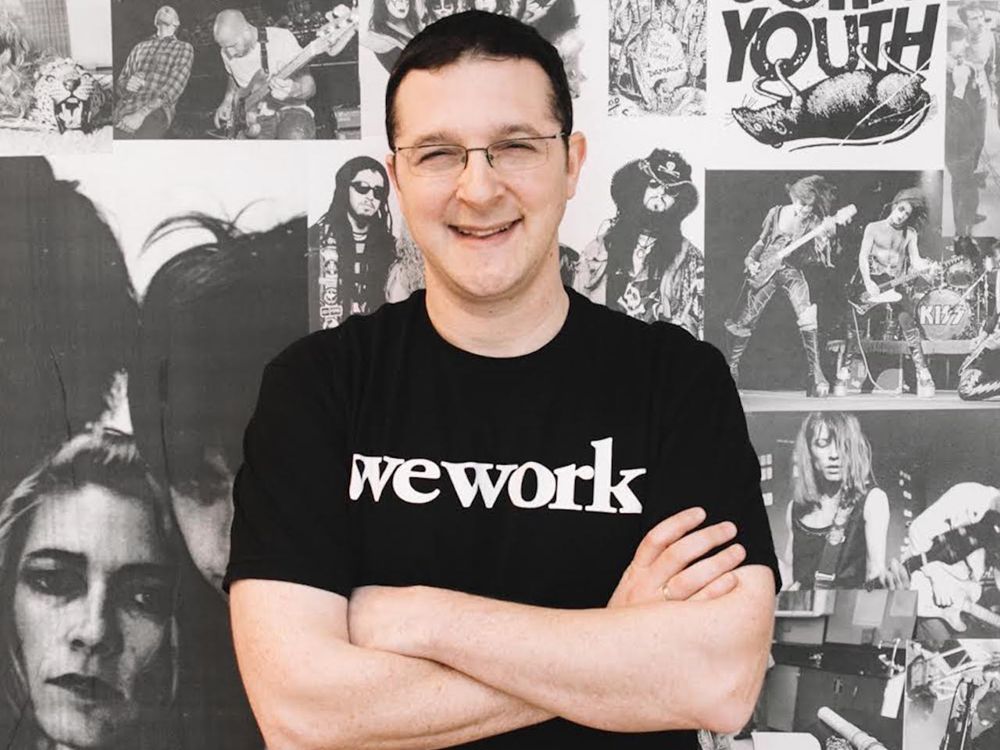“Find what works for you and your child,” recommends one CEO. “And enjoy the moments that are so amazing.”
15+ min read
This story originally appeared on Authority Magazine
Being a parent is hard. Being a parent and managing a large company must be olympian. Between the demands of work, and the myriad of other distracting demanding attention, how do business leaders find the time to be present with their kids?
Authority Magazine recently interviewed close to a hundred busy C-suite executives — dads and moms — to share how they order their lives to be great parents even when they are extremely busy. Here are ten highlights of the series.
These interviews have been edited for length and clarity.
Chinwe Esimai (Citigroup Inc. Chief Anti-Bribery Office)

Image credit: via Authority Magazine
- Being fully present with our children begins with being fully present ourselves. It always begins with us. The first strategy is to tune in on a consistent basis. When we take the time to tune in, everyone and everything around us benefits. I spend a minimum of 15 minutes in the morning and evening in quiet time and reflection.
- Scheduling in family time and priorities, and treating those with the same intention and precision as we do our professional goals and projects.
- Knowing our children’s biggest needs to thrive in the specific chapter of their lives, and meeting or supporting those needs. What’s most critical for an infant to thrive won’t be the most critical for a teenager.
Steve Hafner (KAYAK CEO)

Image credit: via Authority Magazine
- A good parent is someone who prepares their kids to be happy and productive in the real world. I don’t aspire to be best friends with my daughters and I don’t push them to achieve at any cost. Rather, I want them to see the world for what it is, warts and all, and to enjoy the challenge of making it better. For example, my 19 year old daughter, Eva, is spending the first half of her summer studying in Germany — which will surely be a lot of fun. But the second half she will be working for Summits.org, which is trying to improve educational outcomes in Haiti. I can’t think of a better way for her to grow then to compare Berlin and Port Au Prince and see the human impact of bad governance.
- It’s hard to totally unplug from work given the ubiquity of the internet. So the best way to be “present” is to keep your cell phone out of reach and hearing range. If you do keep it, make sure you spend more time looking up then down. I can’t tell you how many times I see parents at soccer events or concerts totally ignoring their kids’ performances. I also prefer using my eyes as the camera, not the phone. Sure I miss the ability to rewatch a moment, but I’d rather fully enjoy it the first time.
- Don’t get trapped by routines or popular notions of success like grades. The world’s a big place and there’s so much to learn. You grow the most when you try new, harder, inconvenient stuff. I have two daughters in college right now and one of the things I tell them is not to worry about maximizing their grades. I want them to focus on taking challenging courses — they may be a stretch, but in the end will make you more interesting.
Amber Quist (Silvercar by Audi CMO)

Image credit: via Authority Magazine
My oldest daughter a few years back had a hard time transitioning into a new school. I couldn’t pinpoint what the exact issue was, but I started to spend the first ten minutes that I was awake solely focused on my kids vs. getting up and throwing everyone into the madness of the morning routine. I’m not always consistent about this, but it does seem when they start their days off with getting just those few minutes of all of my attention, we all function a little better.
I’d also recommend figuring out how to keep the glass balls in the air and let the rubber ones bounce. A manager once told me this, and it seems simple, but it took a watershed moment for me to realize that I couldn’t do it all. I had to recast expectations I’d had of myself of being the perfect mom, perfect spouse, perfect employee, etc. and determine what balls I was going to let slip through my fingers and fall to the ground. For instance, I stopped baking homemade cakes and being ok with store bought ones, my kids never match and rarely have bows in their hair, and sometimes the clothes don’t get folded, but letting those things be my rubber balls has freed me up to get the sleep I need and spend the time I need investing in my kids.
Another thing I believe helps to build high-quality connections is to volunteer at the school or even go eat lunch with your child from time to time. Also though this sometimes feels hard to fit into our busy lives, the act of being present in a place that is unexpected leaves a long impression on my kids.
Finally, having a special ritual with your children, I think it can help create those connections. We have Friday night movie night and little bedtime routines that always feel like our time to reconnect.
Robert Duncan (Founder of Transwestern)

Image credit: via Authority Magazine
Well, I’m not the expert here, and I attribute most of our good family activity ideas to my wife, Marcy. But, I’m happy to share with you some of the things we did.
Going to church as a family is as good as it gets — with lunch afterward. We believe that building faith as a family is the most important component for kids to be well-grounded and to live purpose-centered lives.
I would also suggest trying to make your house the favorite venue for your kids and their friends. We did everything we could to get their friends to want to hang out at our house. This not only allowed us to keep an eye on our own kids, but we could make sure they were hanging out with other kids we thought were a good influence. For example, we were fortunate to have enough space to build a baseball diamond and batting cage in our backyard. They had an instant place to play baseball and football. On any night, we could have anywhere from 10 to 20 kids in our backyard, and on weekends we had even more. It was wonderful. It kept Marcy and me involved and let us get to know their friends well.
Family vacations should be a forever thing. Work hard to find a time slot where everyone can be there — 100 percent attendance. As the years go by and the logistics get tougher, figure out how to do it, even if it is a shorter time slot. I’m sure we wouldn’t be working together today if we had not bonded so well together as a close family over the years — with shared values.
Good parents are engaged, involved and good listeners. They have developed the kind of relationships where their children will talk openly with them. Boys can be challenging because sometimes they don’t like to talk. Thankfully, Marcy is a good listener and has helped me with this. She tells me not to try and come up with a quick solution, but rather just listen. It’s important to recognize when they’re trying to get something off their chest and only need you to listen. Similarly, when they are trying to solve an issue, help them think through it critically and come up with solutions themselves.
Good parents also recognize they may not have all the answers their children need. A wonderful gift parents can give their children is finding great mentors for them. Children certainly watch and learn from their parents, but they also listen to others. It’s important that the people around children are instilling the same values you wish them to emulate. This means coaches, teachers, extended family, priests, tutors and friends. If you can, find someone who can serve a need that also has the characteristics you value. For instance, if a little league coach is also a good role model, it can mean a lot for their character development. Similarly, if they have friends or others who are not a good influence, it’s your responsibility as a parent to steer them away from those people.
Good parents must find the balance between being both disciplinarians and good friends. Parents who spend a lot of time with their children, like we did, are going to develop a close relationship with them. This means you have to know when to be tough, even if they’re your best friends. That has been a hard one for me sometimes.
I also think it is really important to teach your children how to set goals and write them down. Then monitor their progress. This helps them think, stay focused and learn accountability.
Perhaps the biggest responsibility a father has for his family is being their protector. More important than mentorship or building relationships is protecting your family. A good father, first and foremost, is not only establishing a vision for the family and the values of the family, but preserving the integrity of the family and guarding it from destructive influences.
Dani Dudeck (Instacart Chief Communications Officer)

Image credit: via Authority Magazine
As a parent, it can be tough to shift gears, especially after work. To ease the process here are some techniques I’ve discovered.
- First, I’ve decided to protect 6:30 to 8:30 a.m. every night. I calendar it, block the time and no one can schedule on top of it (unless it’s incredibly urgent). It’s rare that something can’t wait two hours so I try to be religious about that time as our family’s wind down.
- Second, I never have my phone out at dinner — whether we’re eating at home or out at a restaurant — I don’t want my daughter to think that anything is more important than our meal and conversation.
- Third, if I have a call, I leave the house or take it from my car. We have a loud house and I like to be focused and present when I’m home. Before becoming a mom, I used to be absolutely glued to my phone and I’ve really tried to create boundaries that feel doable and practical even with a busy job.
Diana O’Brien (Deloitte CMO)

Image credit: via Authority Magazine
I have to give my husband the credit here. I constantly feel pressure to be everywhere and do everything for everyone. He on the other hand, lives in the moment. When I would be running down a list of things to get done. He would say something like: “But first we have to jump on the trampoline.” Or “I will do that if right now we can make each of these kids laugh.” That filled our days with the best memories. So, my advice is choose someone that lives in the moment to be your life partner.
Also, for my husband and I, other parents’ understanding and support saved us so many times.
On a family vacation 10 years ago, my son melted down at a restaurant on our way to Boston. I don’t know why he erupted into a rage at that moment. He grabbed my hair, ripped my shirt and bit me. I tried to contain him all the while trying to protect his sisters. When my husband returned, we managed, together, to get the kisd to the car before there were any more battles. Once they were safe and inside the car, my husband and I stood outside and cried.
A man, who had been in the restaurant, came up, and asked “Are you all okay? Does your son have autism?” He then handed us the food we had left in the restaurant — all wrapped — and said, “You both are amazing” No judgement, only kindness. That made a big impact on us both.
So here is my simple advice for new parents.
- Don’t question how much syrup your husband puts on your kid’s waffles.
- Accept the fact that brownies with ice cream can count as dinner.
- Laugh more, worry less and hug a little longer.
Kitty Block (Humane Society of the United States President and CEO)

Image credit: via Authority Magazine
I think every parent struggles with this and it’s one of the hardest for me. But here are some of the strategies I have found most helpful:
- Be engaged. Put the phone away when you’re having a conversation. Even if you’re not looking at it, having it on the table or in your hand can send a signal that you’re there — but only until the next email comes in.
- Think before committing. It’s easy to say “yes” to doing something without fully taking into account what is entailed. Before committing to something, think about if this is really something that requires your presence, and if so how much time it will take. If it can be delegated or parts of it can be, you can use that time to focus on more important tasks or have more time with family.
- One size doesn’t fit all. Everyone’s situation is different, and what works for one person may not work for another. I think back to when my colleagues and I would arrange childcare together so that we could attend the international meetings but also spend time with our kids. It wasn’t the typical approach to solving the dilemma of finding childcare, but it’s what worked for us. I’m learning the same holds true for how to be present for your kids as they get older. It’s important to take a step back and look at your unique situation and your children, and see if maybe you need to try something different or unconventional.
- Learn from your mistakes, which I consider my most importance piece of advice, and move on. It’s easy to drive yourself crazy reading parenting books or searching online. For every question you have as a parent, there are at least ten different answers, and many if not all of them will contradict with each other. Find what works for you and your child and enjoy the moments that are so amazing.
Alison Elworthy (HubSpot SVP)

Image credit: via Authority Magazine
- Surround yourself with a team that you rely on — both at work and at home. I find myself able to more easily switch on and off because of my strong team at work that I know I can trust and rely on. Similarly, when I am at work, I am fully present because I have my full trust in our nanny and don’t have to worry about my kids.
- Create patterns in your schedule. I leave work at 5:30 p.m. every day and I mostly don’t check my email from 6 to 8 p.m. during the week or on weekend mornings. Building that schedule was easy thanks to HubSpot’s flexibility, but getting used to being unavailable was a bit harder. Once I got into a routine, it became more natural, and I found that if I respected my boundaries, my colleagues did too.
- Self-care is critical in order to be a functioning and happy, present mother. That includes sleep, working out and eating healthy for me and being able to identify what recharges and fuels me has made a world of difference in actually making those things happen.
- Set your own expectations and stay true to yourself. You can listen to the advice of family, friends, podcasts and blogs, but you have to be true to yourself and what works for your own family. Focus on raising responsible kids and surround yourself with the people who can support your mission.
- Make sure you don’t forget about what makes you happy. If your job keeps you engaged and motivated, great! If it doesn’t, it’s not worth it. You don’t have to choose either your career or motherhood, but you should make sure that both bring you joy.
- Last, but certainly not least, make sure your kids always feel loved. That’s all that matters in the end.
Roee Adler (WeWork Head of Labs)

Image credit: via Authority Magazine
I’ll start by saying that I think the solution differs between ages and the situations of each family. For me, it’s often the early morning hours and the homework time that can be spent together as well as the weekend. And I make a point of participating in every event that is important for my daughters. (Before I moved to the U.S. I had no idea how many plays, performances, choir concerts and other kinds of stage events could happen in the life of a grade schooler.) My hit rate isn’t 100 percent but it’s not far off.
One simple technique that my wife and I use to be present with our children and share the parenting workload is to split the evenings and afternoons. Two or three days a week I leave work early, head home and spend time with the children. On the other days, she does the same. At different periods in a child’s life, there are different things that you need to be present as a parent. Right now for our daughters, being there for homework time is important because they have homework every day, and we are trying to make homework an empowering and growing experience for them.
One of the things I learned when I was about to become a parent for the first time, and being the nerd that I am and reading way too many books, it is that one should never use the term “good boy.” The reason is that using the term “good boy” implies that there are bad boys and there are those who are not bad boys. There’s a body of belief that asserts that all boys and girls are born good, and they are the products of their environment and how they’re being raised. In the same vein, I don’t think I or anyone else can say what being a “good parent” is. It’s highly dependent on the context, the culture and the specific situation. I do think that there are universal truths about behaviors no parents should engage in and that generally speaking, spending more time with your children and being present is better than spending less time with your children. But where those lines cross is something that we have to leave to parents.
Luckily with a scientist mother and an engineer/entrepreneur father, our daughters get quite a lot of exposure to aiming high, being creative and tenaciously striving towards impactful outcomes. But there are a few things that we always try to do with them, like using questions, creating space for them to explore and invent, and encouraging them to immerse themselves inside stories and tales (more books, less TV.) We constantly read to them at a narrative level that may result in questions to which we could answer, well, what do you think? My Little Pony has surprisingly complex villains and Dog Man is actually hilariously funny for me as well.
Barbara Goose (John Hancock CMO)

Image credit: via Authority Magazine
- Dinner is sacred. Have dinner together every night (as much as you possible can). No devices.
- Ask each family member what was the best part of the day? Focus on the positive.
- Have a weekly family meeting to go over who needs to do what, be where, etc. It gives the kids a chance to contribute.
- Have a family Google calendar and put everything on it. It will be afford sanity between you and your spouse. Once the kids are older they can use it too.
- Be your kids advocate, from everything from at school to sports. Try not to be a helicopter, but to show up when it matters. Go to school plays and sporting events. Your work will get done. You won’t remember the call you rescheduled, but you will always remember missing that school play.
- Practice patience, learn not to be in control, double the time you think you need to do anything (especially with a new baby), prioritize the big events. Your kids will hold you accountable.
- Laugh a lot and surround yourself with a village of help. There is no such thing as too much help from your spouse, parents, friends or a caregiver. Having help is not admitting defeat.
- Love your kids for who and what they are. And remember — each kid is different. Love them the same but interact and take care of them differently.
- Schedule a weekly date night. Try not to talk about the kids while you’re out!
https://www.entrepreneur.com/slideshow/341522

